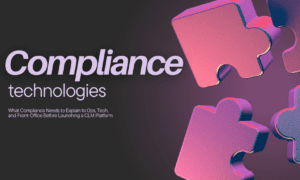Business-friendly PCI DSS payment solutions are more important now than ever. Because it’s clear that the traditional method of payment information protection isn’t working. And rates of fraud and cyberattacks are only going up.
Everyone in the data security field knows the stress that preparing according to Payment Card Information Data Security Standards has on a business. They also know that it’s mandatory – and for good reason.
Since the 2017 Equifax hacking scandal, hundreds of other breaches have occurred. And big-name brands are no exception. For example, Marriot experienced a 4-year data leak, during which affected half a billion customers. Other global businesses that have experienced hacks where credit card data was stolen include Panera, Orbitz, Newegg, and British Airways.
But large enterprise companies typically have the resources to bounce back, while small and medium-sized businesses can easily end up going out of businesses. High fines, potential customer settlements, and negative brand perception are all long-term consequences of a breach.
PCI DSS is one way that businesses can combat data breaches.
Are You PCI DSS Compliant?
While PCI DSS is mandatory, obtaining and maintaining full compliance is fairly rare. According to a recent survey, only 26% of merchants have a compliance rate of over 60%.
But this isn’t necessarily surprising. PCI DSS is expensive and time-consuming, especially for small merchants. Even the lowest-costing level of PCI compliance – Level 4 – may end up costing you at least $50,000 on the front end, and $35,000 annually to maintain your compliant status.
If you’ve ever reviewed the PCI DSS requirements, you may know that there are 6 objectives, 12 requirements, and over 200 mandatory sub-requirements.
Among many other items, some critical questions for evaluating your own compliance measures are:
- Is your cardholder data isolated from other networks and systems?
- Are your systems encrypted or tokenized?
- Who has access to cardholder data?
- Have your employees been trained on how to securely handle data?
- Have you installed, updated, and maintained anti-virus software, firewalls, and other security software?
Common PCI DSS Payment Solutions
To become compliant, there are really three ways that businesses can pursue: In-House solutions, bringing in strategic vendors, and outsourcing.
The most expensive and labor-intensive solution is to do everything in-house. When you take on the burden of becoming PCI Compliant without outside help, you have to shoulder all of the expenses and liabilities associated with creating a PCI DSS secure network. For example, you’ll need to find a way to pay for items like:
- Compliant infrastructure
- Software
- External audits
- Remedial steps based on your audits
- Employee training
- An in-house team dedicated to data security
But there are other PCI DSS payment solutions that can benefit your eCommerce or brick-and-mortar business.
Bringing in third-party vendors is one way businesses try to reduce costs and resources spent on data security. This can work quite well, although not every vendor will actually cost less and you’ll need to carefully evaluate potential candidates. And while bringing in outside help can reduce the time you spend on compliance, just plugging your system with outside resources won’t take you out of PCI scope. Or remove the liability in case of a breach.
Some vendor solutions include hosted solutions for secure data storage or tokenization. But they typically only offer individual services and these won’t take you entirely out of PCI DSS scope.
The third and final solution is to outsource your entire PCI DSS network and process. This can work well to reduce your PCI scope. And depending on the company, you may be able to shift the liabilities associated with a hack to the outsourced company.
We believe that the best solution is to outsource your PCI DSS compliance. This allows you to launch quickly, reduce costs, and reallocate more resources to growing your business.
A Business-Friendly Solution to PCI DSS Compliance
A truly business-friendly solution to PCI DSS compliance is one that becomes an accelerant, not a burden. That’s why providers like VGS offer technology that takes you completely out of PCI scope.
Let me explain.
VGS uses a form of tokenization called data aliasing. They intercept cardholder data through a proxy at the beginning of a transaction and turn this data into an alias. This alias cannot be reverse-engineered or deciphered. It’s completely useless to a hacker, and this is what your company received. And while you can use that data as if it were the original thing, it’s not.
The real data is entirely stored in VGS vaults, and it is transmitted via a proxy. In other words, you never touch the original sensitive data. This not only takes you out of PCI scope, but it also shifts the liability in case of a breach from you to your data security partner.
But that’s not all. This form of data security is also more affordable. Since you don’t need to invest in the infrastructure or software for data protection, or keep data security engineers on your payroll, you can cut costs up to 75%.
And since there’s so little you need to work on to become compliant, the 6+ month process becomes as little as 7 days. This means you get launched quicker than before and start building vital customer relationships, all without sacrificing data security.































